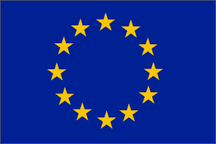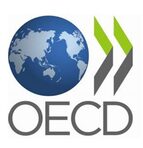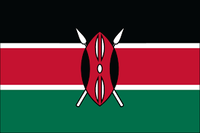|
Irish Revenue has updated Tax and Duty Manual concerning Guidelines for requesting Mutual Agreement Procedure (“MAP”) assistance to incorporate Council Directive (EU) 2017/1852 of 10 October 2017 on Tax Dispute Resolution Mechanisms in the European Union.
The Manual has also been updated to reflect section 959AW of the Taxes Consolidation Act 1997, which enables the collection of disputed tax to be suspended where, on foot of an assessment or amended assessment raised by Revenue, the taxpayer makes a MAP request within 30 days after the date of the notice of assessment and has paid any undisputed tax amounts. Last, guidance relating to correlative adjustment claims has been removed from this Manual. See Announcement On December 22, 2021, the European Commission proposed a Directive ensuring a minimum effective tax rate for the global activities of large multinational groups.
Today's proposal follows closely the international agreement and sets out how the principles of the 15% effective tax rate – agreed by 137 countries – will be applied in practice within the EU. It includes a common set of rules on how to calculate this effective tax rate, so that it is properly and consistently applied across the EU. The proposed rules will apply to any large group, both domestic and international, with a parent company or a subsidiary situated in an EU Member State. If the minimum effective rate is not imposed by the country where a low-taxed company is based, there are provisions for the Member State of the parent company to apply a “top-up” tax. See Announcement The OECD's Forum on Tax Administration (FTA) held its 14th Plenary meeting on December 16-17, 2021, bringing together tax commissioners from across the globe as well as representatives from international organizations and regional tax administration bodies. Participants discussed top-of-mind tax administration issues including the implementation of the landmark Two-Pillar Solution, lessons learned from the ongoing responses to the global COVID-19 pandemic, digital transformation, and capacity building.
FTA members agreed to prioritize support for implementation of the Two-Pillar Solution, including through the possible further development of tax certainty tools to help prevent disputes and reduce burdens. They agreed to develop a new strategic framework covering both digitalization and digital transformation to inform both domestic reforms and international collaboration, drawing from the new digital transformation maturity model and the web-based Inventory of Tax Technology Initiatives to be launched in early 2022. The members also agreed to prioritize tax capacity building initiatives to assist developing countries with the implementation of the Pillars and the further digitalization of tax administration. See Announcement On December 20, 2021, Ireland launched a public consultation on the implementation of Directive EU 2021/2101 on the disclosure of income tax information by certain undertakings and branches.
The Directive introduces for the first-time public country-by-country reporting of corporate tax information by multinational enterprises (MNE), regardless of whether they are headquartered in the EU or not, with a net turnover of more than €750m, and who are doing business in the EU, including through subsidiaries and branches, for each of the last two consecutive financial years. The deadline for submissions is February 18, 2022. See Announcement On December 14, 2021, Kenyan government published a draft version of the Tax Procedures Act (Common Reporting Standards) Regulations, 2021.
The rules would come into operation on January 1, 2022. Comments must be received by January 4, 2022. See Announcement On December 13, 2021, OECD released the second batch of updated transfer pricing country profiles for Austria, Belgium, Bulgaria, France, Georgia, Germany, Indonesia, Ireland, Italy, Latvia, Malaysia, Mexico, Peru, Poland, Seychelles, Singapore, South Africa and Sweden.
Today’s release also includes for the first-time country profiles for Albania, Kenya and the Maldives, bringing the total number of countries covered to 63. The transfer pricing country profiles contain up-to-date and harmonised information on key aspects of transfer pricing legislation and practice, provided by countries themselves in response to a questionnaire. See Profiles On December 10, 2021, South African Revenue Service (SARS) published a high-level model and draft legislative framework for an advance pricing agreement (APA) unit and associated processes at SARS and the introduction of an APA program in South Africa.
It is hoped that the release of the model and draft of the APA legislation will not only lay the groundwork for the APA program but will facilitate comprehensive engagement from all affected parties. Comments may be submitted by January 31, 2022. See Announcement Singapore’s Ministry of Finance is inviting stakeholders to share their views and hopes for the upcoming Budget 2022, which is scheduled to be presented in February 2022.
Information on Singapore’s national Budget process and Budget 2021 measures can be found on MOF’s Budget website. Stakeholders can provide their suggestions for the coming Budget through several channels over a six-week period. Comments must be received by January 17, 2022. See Release The tax treaty between Brazil and Singapore entered into force on December 1, 2021.
The tax treaty was signed on May 7, 2018. The treaty will benefit businesses in both Singapore and Brazil as well as boost bilateral trade and investment flows between the two countries. The full text of the treaty is available on IRAS’s website. See Treaty |
Archives
March 2024
|
COMTAX ABC/o Ekonomiforetaget Baehring Dahl AB
Berga Alle 3 25452 Helsingborg Sweden |
CONTACTTel.: +46 46 590 07 70
E-mail: support(@)comtaxit.com |
INFORMATION |
© COPYRIGHT 1985 - 2024 COMTAX AB. ALL RIGHTS RESERVED.








